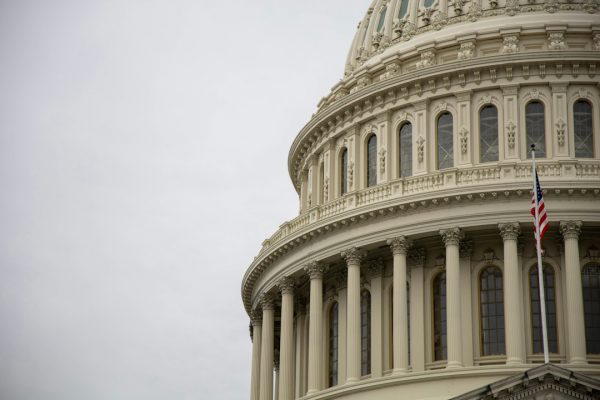An election year is, once again, upon us. It is a presidential election which will undoubtedly be referred to as the “most important of our lifetimes.” Anxiety and animosity, fear and frenzy, slander and suspicion are already the air we breathe, the water in which we swim. But things seem to get turned up to eleven when it comes time for campaigning and voting. So, we have compiled a few select resources that we have found helpful in navigating our political moment as well as provided some reflections on politics, political engagement, and the voting booth.
A helpful resource on political engagement
A Christian Guide to Political Engagement (PDF)
The Ethics and Religious Liberty Commission (ERLC) of the Southern Baptist Convention has produced a very helpful Christian Guide to Political Engagement. This is a resource written in the style of a catechism as a starting point for believers to consider how we ought to think about politics as exiles who belong to the kingdom of God’s beloved Son and believe that Jesus is Lord (Col. 1:13; Phil. 3:20; Heb. 12:22). This catechism is also a guide for how Christians should live every day not spent in a voting booth as well: “Our political participation should not be boiled down to a vote cast on one day, important as that vote may be. Politics is about life in community with others, and those relationships exist even when candidates aren’t vying for our votes, donations, and attention.”
Reflections on politics, voting, and the church
Here are a few of our own reflections:
The hope for our nation is not political—if by political you mean whether Republicans or Democrats run the country. We need a different political solution, and that solution is the gospel of the kingdom of God. The good new an inherently political message announcing that God reigns as king through the sacrifice and exaltation of Jesus, whose saving rule has broken into the present age. The life of the kingdom of God is experienced today in the church, and it is the work of the Spirit in and through the church that brings true transformation, life, healing, and hope to the nations. It may be cliché to say this, but the hope for our nation is not a donkey or an elephant but the Lion and the Lamb.
As Christians, our allegiance is first and foremost to the risen Lord Jesus. We are citizens of heaven before we are “Americans.” This means our greatest concerns are not economic growth, military strength, or political power. We are not motivated by the fear or urgency of politics, or the sensationalism of social media. Rather, the love of Christ compels us to seek the welfare of the city where we are in exile, to pray on its behalf, to pursue biblical justice, and to love our neighbors as we wait for king Jesus puts the world to rights.
As Christians in America, we are privileged to influence our government by voting. We have the opportunity and responsibility to promote biblical justice and human flourishing on local, state, and national levels. While much can be said about this, here are two guiding principles for voting:
- Christians should aspire to vote for the candidate or platform that they believe most consistently aligns with biblical principles—that pursues biblical justice and promotes human flourishing in ways that most accord with the truth of God’s Word.
- Christians should avoid voting for candidates or platforms that undermine foundational, creation-order issues. These issues include upholding the dignity and nature of human life, the sanctity of marriage, support for the natural family, and the God-ordained realities of sex and gender. Of all the issues at stake in any election, these are the most significant.
Christians have always struggled with how to vote for because no party promotes a fully biblical platform. In the end, we must vote according to a conscience that is calibrated to Scripture and committed to God’s glory. But when it comes to our current political landscape, the outlook is bleak:
- The Democratic party has unfortunately come to adopt policies and endorse candidates that explicitly defy the truths of Scripture. The platform seeks to undermine those foundational, creation-order issues just mentioned. It rejects fundamental aspects of God’s good design for humanity. The policies they promote and the propositions they put on our ballots may sound good, but are opposed to God’s created order.
- That being said, the Republican party has also tragically begun to soften its stance on some of these foundational, creation-order issues and is on a very slippery slope as well. It is becoming increasingly clear that both political parties are more concerned with winning elections than upholding biblical justice and God’s design for human flourishing
Our church does not endorse either political party or presidential candidate. We are not an extension of any political party, for we are an embassy of the kingdom of heaven. We also acknowledge that voting is a complex matter requiring wisdom from God. But we do believe that these foundational, creation-order, biblical issues should influence how we vote. In times like these it is good to remember that Christians can, in good conscience, abstain from voting or vote for an alternate candidate if neither candidate satisfies the principles of voting we’ve mentioned. There is a very compelling case to be made for voting third party or abstaining to vote in times like these, which Joe Carter calls “convictional inaction.”
In any event, whatever the outcome of any election, we must also keep in mind the following:
- The kingdom of God is not bound by politics, presidents, or public policy. Even if our nation continues to face God’s judgment for its rebellion and idolatry; even if we continue to have ungodly and unqualified leaders on both sides of the political aisle, we can still rejoice. For it’s in the darkest of times that the city of God shines brightest amidst the cities of men.
- We must embrace a biblical posture of honor toward our governing authorities, regardless of who they are, and strive to cultivate Christian charity. Each election cycle gives us an opportunity to show our divided nation what it looks like to be citizens of a better and more lasting kingdom who aren’t tossed about by the winds of partisan politics, who are filled with the fruit of the Spirit, who pray for our leaders rather than slander them.
- Finally, know that what happens in worship on the Lord’s Day, is more important than anything that will happen in Washington or at the ballot box. No exaggeration. What happens in the liturgy of the church is more vital to the future of the world than what happens at the ballot box. For worship is the source of life not only for the church but for the world.
Yes, vote according to a conscience informed by Scripture; yes, stay informed about and involved in politics (especially at the local level); yes, seek the welfare of the city where we are in exile and pray to our God on its behalf (Jer. 29:7). But devote your entire life to proclaiming and portraying Christ, and practicing the habits of grace (Acts 2:42). Keep your political discourse (and any other complicated and potentially triggering discourse) in person as often as possible. Reprioritize your commitments to your local contexts: your family, church, and community. Pursue justice right where you are by treating your neighbors according to the righteous character of God—with love, patience, fairness, and truth. And set your hope on the King who will one day put the world to rights. Doing these things will up us stay sane in an election year.
Recommended Reading
- Jesus and the Powers, Michael Bird and N.T. Wright
- Political Gospel, Patrick Schreiner
- Political Visions and Illusions, David Koyzis
- The Kingdom and the Power, Peter Leithart

Mitch Bedzyk serves as a pastor Emmanuel Community Church, overseeing music and Sunday Classes. He received his Master of Theological Studies from Midwestern Baptist Theological Seminary and works in IT for the NY Office of Mental Health. He and his wife, Sarah, have five children: Kya, Khalli, Oliver, Amelia, and Micah. In his spare time he enjoys reading, coffee, guitar, being an MLS fanatic and playing fantasy soccer.




